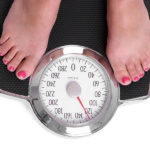By Bonnie Jenkins, Advanced Natural Wellness
If you’re concerned about maintaining good health, you probably put only the highest quality, least adultrated food and supplements into your body. But what about the things you put on your body? Even the most expensive cosmetics and personal-care products can harbor some pretty shady ingredients. One type of cosmestic ingredient you should be especially concerned about is parabens.
Parabens are a group of widely used preservatives that, for years, were thought to be perfectly safe for people. Listed on ingredient labels as methylparaben, propylparaben, ethylparaben, butylparaben, and benzylparaben, these broad-spectrum antimicrobials were cheap, stable, and effective, making them extremely popular with manufacturers. As a result, parabens were including in nearly all personal-care products to keep them from spoiling. But in the late 1990s, data on parabens’ more nefarious properties began to surface.
Estrogen Rising
What’s so bad about parabens? In 1998, British researchers at Brunel University discovered that parabens mimic the female hormone estrogen. Since then, Danish scientists have found that the estrogenic properties of propylparabens and butylparabens are just as potent as bisphenol-A, a hormone-disrupting petrochemical used to make plastics.
High paraben concentrations in males can lead to more body fat, lower muscle mass, and gynecomastia (the development of breasts in men). More recently, Japanese research linked the estrogenic activity of parabens to male reproductive system damage, including low sperm count and decreased testosterone levels. More frightening, the damage occurred at doses well below the accepted daily intake.
But men aren’t the only victims of this common family of preservatives. Scientists have found high concentrations of parabens in breast tumors, leading them to speculate that the parabens came from products routinely applied to the skin. One study found parabens in 20 human breast tumors, with methylparaben in the highest concentrations.
Open your arteries, improve blood flow for a new health miracle...
Did you know your circulatory system has over 60,000 miles of arteries, veins and other blood vessels, if stretched end to end?
But as you age, your blood vessels undergo changes, which may cause them to stiffen, thicken and get clogged.
GOOD NEWS! Doctors have now identified a “Miracle Molecule” inside your arteries that helps OPEN your arteries and IMPROVE blood flow.
It’s what Dr. Valentin Fuster calls it, "One of the most important discoveries in the history of cardiovascular medicine."To you, that means...
- Healthy blood pressure
- Sharper mind and memory
- Skyrocketing energy and muscular strength
- Increased pleasure and passion in the bedroom
- Improved circulation to every cell and organ in your body
Go here to discover a new natural way to significantly boost the levels of this miracle molecule in YOUR body NOW!
Breast tissue may not be the only problem sparked by parabens. In one study, benzylparaben applied to the skin of immature female mice increased the size of their uteruses, a result similar to that caused by pure estrogen. The researchers who conducted this study speculate that parabens could have the same affect in people. Since parabens have routinely been included in toiletries designed for babies and children, this could impact a girl’s reproductive health in her later years.
Not So Pretty
Parabens can also make your skin look older, diminishing skin tone and accelerating the formation of wrinkles and age spots. Researchers from Kyoto Prefectural University of Medicine in Japan discovered this when they applied methylparabens to skin in amounts similar to what you would find in cosmetics. When the skin was then exposed to ultraviolet light, 19 percent of the cells died compared to just 6 percent in untreated skin. The level of lipid peroxide, a substance that speeds up the aging process, was also three times higher in the paraben-treated skin.
These ubiquitous preservatives can also cause skin reactions. One reason may be that they don’t disappear after they have been absorbed into the skin. What that means is that, if you apply a paraben-containing product to your skin every day, the preservatives aren’t metabolized. Instead, these chemicals accumulate to the point where they can cause an allergic reaction like eczema, a rash or other unsightly, uncomfortable problems.
Healthy Alternatives
The World's Quickest Solution for Ending Prostate and Urinary Misery
This has recently been revealed to be one of the only real breakthroughs in prostate health.
The seeds of a strange fruit (sometimes called "Chinese Apples") hold powerful phytonutrients that are a revolution in prostate health.
In fact, UCLA and Veterans Administration research have now proved this to be true.
Not only that, but it may be the worlds quickest solution for ending prostate misery.
Simply stated, these phytonutrients represent a huge step beyond beta sitosterol, saw palmetto, and other phytosterols alone.
Simply click HERE if you want to have fast prostate relief...restful, uninterrupted sleep...no more constant "urges to go"...enhanced virility...and optimal prostate support for life.
Despite the mounting evidence of parabens’ darker side, many manufacturers continue to add them to conventional cosmetic and personal-care products, claiming they are critical to protecting their products from spoilage. Natural cosmetic companies, however, have found some effective alternatives. A growing number of chemical-free cosmetic and personal-care items are now preserved with safe, nontoxic compounds.
Whether you’re buying deodorant, cosmetics, or other types of personal-care products, check the ingredient label. If you spot parabens, put the item back on the shelf. If, on the other hand, you find the following preservatives, relax knowing the products you use every day won’t have any lasting health effects.
•Neem extract: Derived from the azadirachta tree in India, neem is a potent antibacterial that, when combined with other botanicals, forms an effective preservative.
•Neopein: This innovative, broad-spectrum preservative is a proprietary blend of natural plant extracts that protect water-based products from bacteria and fungi.
•Phenoxyethanol: A nontoxic, broad-spectrum preservative used to protect against gram-positive and gram-negative bacteria. Phenoxyethanol must be used in conjunction with other preservatives like potassium sorbate to be effective.
•Polyaminopropyl biguanide: Kills a wide range of both gram-positive and gram-negative bacteria. An excellent alternative to parabens, polyaminopropyl biguanide does not disrupt hormones or release either formaldehyde or volatile organic compounds (VOCs).
•Potassium sorbate: Derived from the mountain laurel ash, potassium sorbate is a mild antimicrobial that also protects against yeasts. It is used in conjunction with phenoxyethanol to protect against gram-negative and gram-positive bacteria.
•Rosemary oleoresin: An oil-soluble antioxidant that helps to prevent rancidity.
One Last Thing …
Cosmetics have taken the spotlight in the paraben debate, but these preservatives are also used in a number of pharmaceutical products and foods. Read labels carefully before purchasing any of these items.
• Personal-care products: antiperspirants and deodorants; color cosmetics; hair-care products; moisturizers and body lotions; skin cleansers and soaps; toothpaste.
• Pharmaceutical products: bandages; eye, ear, and nose drops; local anesthetics; rectal and vaginal medications; sunscreens.
• Foods: baked goods and candy; ice cream and other frozen dairy products; jams and jellies; marinated fish products; mayonnaise; mustard; processed vegetables; salad dressings; soft drinks and fruit juices; spiced sauces.
References:
Darbre PD, Harvey PW. “Paraben esters: review of recent studies of endocrine toxicity, absorption, esterase and human exposure, and discussion of potential human health risks.” Journal of Applied Toxicology. 2008;28:561-578.
Ishiwatari S, Suzuki T, Hitomi T, et al. “Effects of methyl paraben on skin keratinocytes.” Journal of Applied Toxicology. 2007;27:1-9.
Pedersen KL, Pedersen SN, Christiansen LB, et al. “The preservatives ethyl-, propyl- and butylparaben are oestrogenic in an in vivo fish assay.” Pharmacology and Toxicology. 2000;86:110-113.
Routledge EJ, Parker J, Odum J, et al. “Some alkyl hydroxy benzoate preservatives (parabens) are estrogenic.” Toxicology and Applied Pharmacology. 1998;153:12-19






